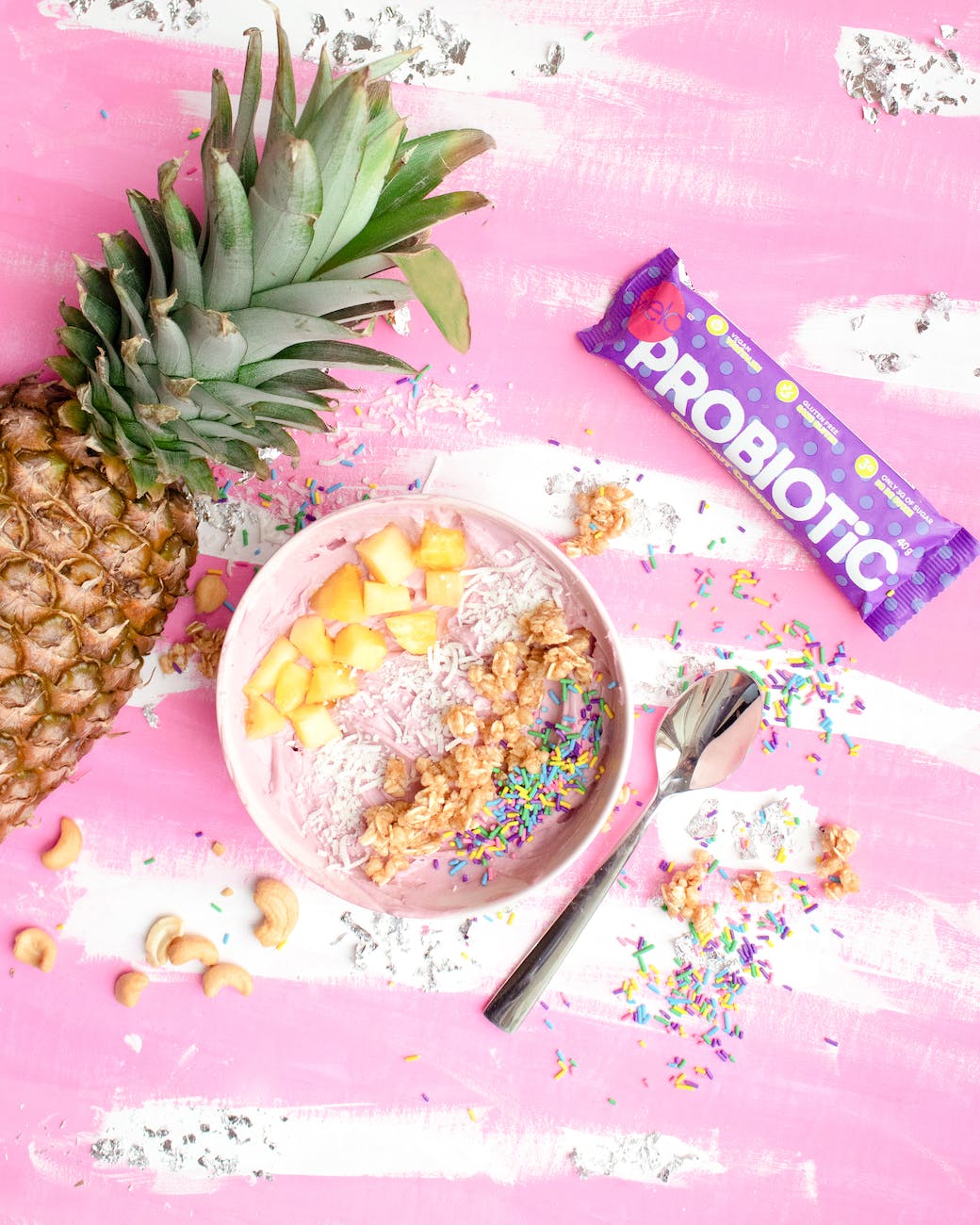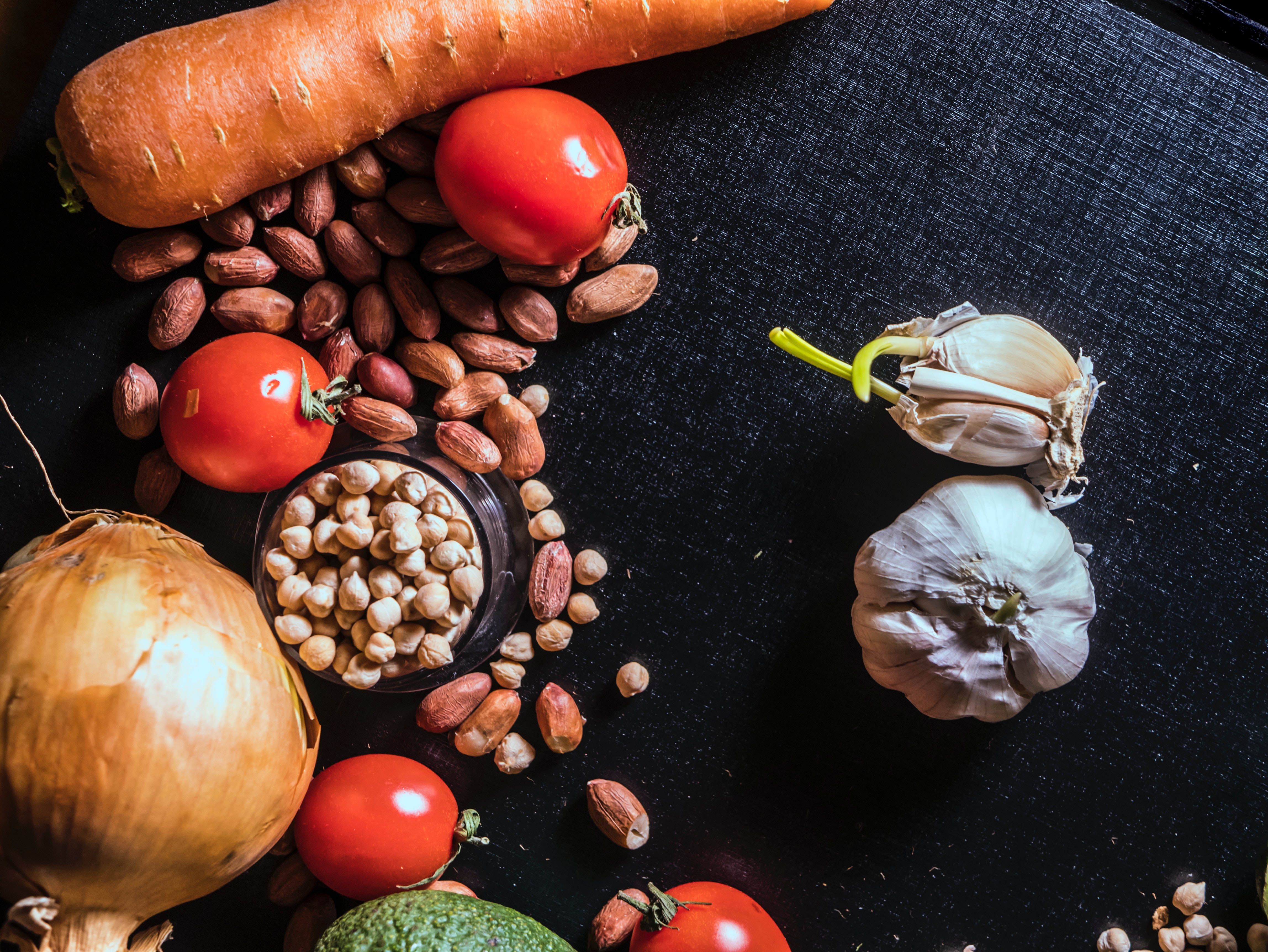17 Weird Ways to Improve Gut Health

17 Interesting and Scientific Ways to Improve Gut Health
I first started looking into how to improve my gut health several years ago when I heard about the “gut-brain connection”.
I was shocked to learn that the amount of bacterial cells we have inside and on our bodies outnumber our cells.1
Healthy gut bacteria can produce compounds that have many beneficial functions that can influence many different aspects of our health. These metabolites can stimulate the immune system, have anti-obesity effects, can break down toxic substances in the food we eat, and can help synthesize vitamins and amino acids. The nervous system surrounding the gut has also been dubbed the “second brain” of the body. Changes in the gastrointestinal environment can have an impact on mood and mental wellbeing.
It is no doubt that our gut health can have a vast amount of effects on our overall health and influence many different systems in the body. Therefore, looking to improve the health of our guts is a great way to increase overall quality of life. If you are interested in gaining better digestion, energy, hormone balance, mood, and more, then see our list of ways to improve the health of your gut below.2
What Are the Best Ways to Improve Gut Health?
When we think of gut health, we almost immediately think of probiotics. Indeed, taking a probiotic supplement is a great way to alter the balance of microbes in our favor, but there are many other lifestyle factors that come into play.
Below, we compiled a list of some of the best ways to improve gut health, based on current research and trends. Including some tips and tricks that may not be as well known. If you are curious as to how you can start making small changes to improve your overall health and vitality, then see below our carefully chosen list of things you can try.
1. Try Intermittent Fasting
We all know our gut microflora is impacted by what we eat. But did you know when and how often you eat can have an effect too? Intermittent fasting has been shown to increase the concentration of beneficial bacteria, and decrease the concentration of harmful bacteria.3
2. Grab a glass of Red Wine
Mild to moderate consumption of red wine has been shown to promote improved diversity of beneficial gut bacteria. This may possibly be due to the high concentration of polyphenols found in red wine. This increase in diversity has also been linked to a lower BMI.4
3. Get Active
Regular body movement has been shown to diversify and promote beneficial bacteria in the intestine. This includes increases in both the quality and quantity of bacteria in the gut. Any type of movement can facilitate these changes, including walking.5
4. Work on Sleep Hygiene

It is no secret that poor sleep quality can have an effect on your appetite. In fact, it can cause you to crave foods that contain more refined sugar. Lack of sleep can also promote an inflammatory response, which can exacerbate conditions such as IBS and Crohn’s. Studies have also been done showing that increased sleep quality and quantity is associated with an increase in the biodiversity of the gut microbiome.6
5. Eat More Polyphenol-Rich Foods
Like we mentioned in step 2, food and drink rich in polyphenols can improve the quantity of beneficial bacteria in the gut. Polyphenols fall under the prebiotic category and are a class of compounds that also offer antioxidant effects and can act as inflammatory. These are all great things if you are someone who struggles with inflammatory bowel disease. Polyphenols are found in higher concentrations in foods such as dark chocolate, berries, tea, and dark leafy greens.7
6. Floss and Brush Regularly
Like your intestines, your mouth also has its own microbiome. This is known as the oral microbiome. Since it is all connected, it stands to reason that a healthy mouth contributes to a healthy gut, as that bacteria can spread throughout the body, especially your gut. Keeping good oral hygiene means having beneficial bacteria dominate the terrain in your mouth and consequently, your gut.8
7. Prebiotic Foods

According to WebMD, prebiotics are fibers found in food, particularly plants. These fibers contribute to healthy bacterial growth in your digestive tract. Feeding the good bacteria means that they have more fuel to grow and divide, and can therefore overtake the less beneficial bacteria. Foods such as bananas, apples, flax seed, and a variety of other fruits and vegetables are great examples.9
8. Fermented Foods
Fermented foods can be considered a potential form of probiotics. This means they contain beneficial bacteria that, when consumed, can facilitate the establishment of beneficial strains in the gut. Some examples are yogurt, kefir, kimchi, sauerkraut, and kombucha.
9.Find Ways to Lower Stress
It is well known that chronic stress has a vast array of negative effects on the body. This includes your gut health. Stress can alter your gut’s microbiome through the influence of hormones and changes in your nervous system. Chronic stress can also lead to a state of inflammation in the body, which doesn’t bode well for those already suffering from inflammatory bowel issues. 10
10. Avoid Pesticides

Chemicals used in the agricultural industry have been shown to cause gut dysbiosis. Dysbiosis is an imbalance in the gut microbiome that can lead to impairments in the gut lining. This, in turn, can exacerbate Irritable Bowel Syndrome, Crohn’s Disease, and may even lead to gastrointestinal cancers. Try to buy certified organic produce and wash them thoroughly. Washing produce in salt water or a baking soda wash may help dislodge more of the chemicals.11
11. Check Your Medicine Cabinet
We are all familiar that pharmaceuticals can come with a laundry list of side effects, and this can include adverse impacts on your gut health. Drugs such as NSAIDS, Pain Killers, Birth Control, Statins, and Antipsychotics have been known to negatively affect the gut microflora and/or increase risk of bowel disorders.
Of course, consult your healthcare practitioner as to whether stopping or reducing medication is right for you.12
12. Reduce Exposure to Artificial Light
Too much artificial light exposure can alter the Gut Microbiome and can impair the gut barrier. It’s hard to completely avoid artificial light, however there are many things you can do to reduce it. For instance, limiting screen time, turning off lights and opening up blinds or curtains is a great way to start.13
13. Get More Sunlight Exposure
Who knew that sunlight, particularly the UVB wavelength, can boost beneficial gut bacteria.14
14. Practice Positive Thinking
Thoughts and attitudes can indeed influence the health of our guts. As we saw in point 9, chronic high stress levels can negatively impact gut health. Thus, it is not too much of a stretch to consider how your mood can impact the health of your gut microbiome as well. Thanks to the gut brain axis, our guts influence our brain and vice versa. Practicing positive thinking and gratitude can help improve gut issues.
15. Oil Pulling
Oil Pulling is the practice of swishing oil (typically coconut oil) around your mouth for a period of 2 or more minutes, and then spitting it out. Swishing oil around your mouth can reduce the amount of dental plaque and bad bacteria. A healthy mouth means a healthier gut, it’s all connected!15
16. Get a Pet

Amongst the many upsides to owning a pet is a benefit that most may not have heard of. Household pets may increase the biodiversity of the microflora in our gut. This makes sense since pets are often outside and exposed to the environment, then bring these microbes back to their humans. One study showed that Ruminococcus and Oscillospira were found to be increased, while Streptococcus was decreased.16
17. Earthing/Grounding
Earthing refers to having contact with the Earth, whether it be dirt, sand, or grass, with your skin. Walking on a beach, lawn, or gardening without gloves. This allows electrons to flow into our bodies via the skin, which in turn has many beneficial effects.
Frequently Asked Questions
- Q: Will Improving gut health lead to weight loss? A: Yes the type of bacteria that make up your gut flora have a significant impact on your weight. By working towards improving the amounts of “good” bacteria in your gut, you may start to see some pounds fall off. 19
- Q: How long does it take to improve gut health? A: The good news is that the amount of beneficial bacteria can start to improve within days of changing your habits. However, some of the long term beneficial effects may take months to years to take hold. The best thing to do is to start right now and allow for those improvements to start taking hold now. 20
- Q: How do I know if my gut health needs improvement? A: Since your gut impacts so many aspects of your health, there are quite a numerous amount of indicators that improvements should be made. These include autoimmune disorders, weight gain, fatigue, sleep problems, allergies and eczema, mood issues, irritable bowel syndrome, and digestive issues to name a few. 21
What Is Gut Health
When we think of how to improve our health, we tend to consider how we might improve our own tissues and cells . We may overlook the fact that there are trillions of other cells we carry around that are not our own. The health impacts of the types of cells, the number of these cells, and the health of these cells can have a major impact on our quality of life. Furthermore, these symbiotic beneficial organisms can help strengthen our own tissues and help fight against disease.
How Can Proper Gut Health Benefit You
Beneficial gut bacteria can secrete secondary compounds (they produce metabolic waste) that get absorbed by our own tissues and circulate throughout our bloodstream. These compounds have a wide variety of protective properties, such as anticancer, anti-obesity, anti- inflammatory, and anti-diabetic effects. They can also provide enzymes that our bodies cannot synthesize, which can help break down nutrients and aid in synthesis of vitamins. It is easy to see why focusing on improving gut health can have systemic effects on the body. This is also true for people who do not struggle with inflammatory bowel disease.
There has been some evidence that a healthy gut microbiome can protect against oxidative stress, improve energy availability, and improve metabolism, particularly when engaging in intense physical activity. 17, 18 So whether you are struggling with an active gut issue at the moment, or whether you consider yourself in good health and are looking to improve stamina, gut health should be on everyone’s radar.
Conclusion
Improving gut health is more than just taking a probiotic. There are many lifestyle changes you can easily incorporate into your day-to- day routine. These changes do not have to be drastic, they can simply start with adding in some prebiotic or fermented foods, or, walking outside and enjoying the sunshine. Gut health sets a foundation for many other aspects of our health, from the health of our skin, to regulation of our moods.
This blogpost was written to inspire small and simple changes that compound overtime. Each of the suggestions have been backed by research published in scientific journals and/or recommended by a professional. Thank you for reading, and we look forward to sharing our future blog posts with you!
References
- https://www.ncbi.nlm.nih.gov/pmc/articles/PMC4991899/
- https://www.hopkinsmedicine.org/health/wellness-and-prevention/the-brain-gut-connection
- https://link.springer.com/article/10.1007/s10123-022-00272-7#citeas
- https://www.gastrojournal.org/article/S0016-5085(19)41244-4/fulltext
- https://www.ncbi.nlm.nih.gov/pmc/articles/PMC5357536/
- https://www.ncbi.nlm.nih.gov/pmc/articles/PMC6779243/
- https://www.ncbi.nlm.nih.gov/pmc/articles/PMC6199944/
- https://www.ncbi.nlm.nih.gov/pmc/articles/PMC6427756/
- https://www.webmd.com/digestive-disorders/prebiotics-overview
- https://www.ncbi.nlm.nih.gov/pmc/articles/PMC7213601/
- https://www.ncbi.nlm.nih.gov/pmc/articles/PMC9279132/
- https://www.mainlinehealth.org/blog/medications-and-gut-health
- https://www.ncbi.nlm.nih.gov/pmc/articles/PMC7472380/
- https://www.genengnews.com/news/exposure-to-sunlight-boosts-good-gut-microbiome-bacteria-and-vitamin-d-levels/
- https://www.ncbi.nlm.nih.gov/pmc/articles/PMC5654187/
- https://microbiomejournal.biomedcentral.com/articles/10.1186/s40168-017-0254-x
- https://www.ncbi.nlm.nih.gov/pmc/articles/PMC6188999/
- https://www.ncbi.nlm.nih.gov/pmc/articles/PMC5847071/
- https://www.health.harvard.edu/staying-healthy/do-gut-bacteria-inhibit-weight-loss
- https://www.bhf.org.uk/informationsupport/heart-matters-magazine/nutrition/how-can-i-improve-my-gut-health#:~:text=Microbes%20in%20the%20gut%20can,it’s%20about%20long%2Dterm%20changes.
- https://www.piedmont.org/living-better/signs-of-poor-gut-health






